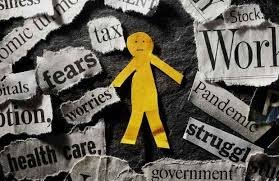Comprehensive Guide to Mental Health Management
The Foundation of Emotional Well-being: Understanding Mental Health
Mental health forms the bedrock of our overall well-being, influencing every aspect of our lives from cognitive function and emotional regulation to social interactions and physical health. Unlike physical ailments that often manifest visibly, mental health challenges frequently remain concealed, making awareness and proactive management crucial for maintaining balance in our fast-paced world.
"There is no health without mental health. Mental health is too important to be left to the professionals alone, and mental health is everyone's business." — Vikram Patel
The Mind-Body Connection
The intricate relationship between mental and physical health cannot be overstated. Chronic stress and anxiety can lead to:
- Weakened immune function increasing susceptibility to illnesses
- Cardiovascular issues including elevated blood pressure
- Digestive disorders such as IBS and acid reflux
- Sleep disturbances that impair cognitive function
- Chronic inflammation linked to numerous diseases
Evidence-Based Strategies for Mental Wellness
1. Mindfulness and Meditation Practices
Scientific research consistently demonstrates the profound benefits of mindfulness techniques:
- Daily meditation: Just 10-15 minutes can reduce cortisol levels by up to 30%
- Body scan exercises: Enhance mind-body awareness and reduce tension
- Guided visualization: Effective for managing anxiety and improving focus
- Breathwork techniques: The 4-7-8 method (inhale 4s, hold 7s, exhale 8s) provides immediate calm
2. Cognitive Behavioral Approaches
Practical tools for reframing thought patterns:
- Thought records: Identify and challenge negative automatic thoughts
- Behavioral activation: Schedule rewarding activities to combat depression
- Exposure therapy: Gradual approach to anxiety-provoking situations
- Problem-solving training: Break challenges into manageable steps
3. Social Connection and Community Support
Human connection serves as a powerful protective factor:
- Regular social interaction reduces dementia risk by 50%
- Support groups provide validation and coping strategies
- Volunteering boosts self-esteem and life satisfaction
- Pet therapy decreases loneliness and depression symptoms
Recognizing When to Seek Professional Help
While self-care strategies are valuable, professional intervention becomes necessary when experiencing:
- Persistent sadness or hopelessness lasting more than two weeks
- Severe mood swings that disrupt daily functioning
- Withdrawal from social activities and relationships
- Changes in sleep or appetite patterns
- Difficulty concentrating or making decisions
- Unexplained physical ailments without medical cause
- Thoughts of self-harm or suicide
Treatment Modalities Available
Modern mental healthcare offers diverse evidence-based options:
| Therapy Type | Best For | Duration |
|---|---|---|
| Cognitive Behavioral Therapy (CBT) | Anxiety, Depression, OCD | 12-20 sessions |
| Dialectical Behavior Therapy (DBT) | Emotional regulation, BPD | 6-12 months |
| EMDR | Trauma, PTSD | 8-12 sessions |
Creating a Personalized Mental Health Plan
Building sustainable mental health requires a multifaceted approach:
Daily Maintenance Practices
- Morning routine: Gratitude journaling, sunlight exposure, hydration
- Workday breaks: 5-minute breathing exercises every 90 minutes
- Evening wind-down: Digital detox, light stretching, reflection
- Weekly check-ins: Self-assessment of mood and stress levels
Nutrition for Mental Health
The gut-brain axis highlights the importance of dietary choices:
- Omega-3 fatty acids (found in fish, walnuts) reduce inflammation
- Probiotic foods support healthy gut microbiome
- Complex carbohydrates stabilize mood and energy
- Adequate protein provides amino acids for neurotransmitter production
- Hydration significantly impacts cognitive performance
Movement as Medicine
Physical activity offers profound mental health benefits:
- Aerobic exercise increases BDNF (brain-derived neurotrophic factor)
- Yoga combines movement with mindfulness
- Nature walks provide grounding and perspective
- Dance therapy combines emotional expression with physical release
Breaking the Stigma: Mental Health in Modern Society
Despite growing awareness, significant barriers remain:
- Cultural misconceptions: Many societies still view mental health challenges as weaknesses
- Workplace challenges: Fear of professional consequences prevents disclosure
- Access barriers: Cost and availability of quality care
- Self-stigma: Internalized shame prevents help-seeking
By educating ourselves and others, sharing personal experiences responsibly, and advocating for policy changes, we can collectively create a more supportive environment for mental health care.
The Path Forward
Mental health management is not a destination but an ongoing journey requiring consistent attention and care. By implementing these evidence-based strategies, remaining attuned to our needs, and seeking support when necessary, we cultivate resilience that enhances every dimension of our lives. Remember that seeking help demonstrates strength, not weakness, and that small, consistent actions create meaningful, lasting change in our mental well-being.
